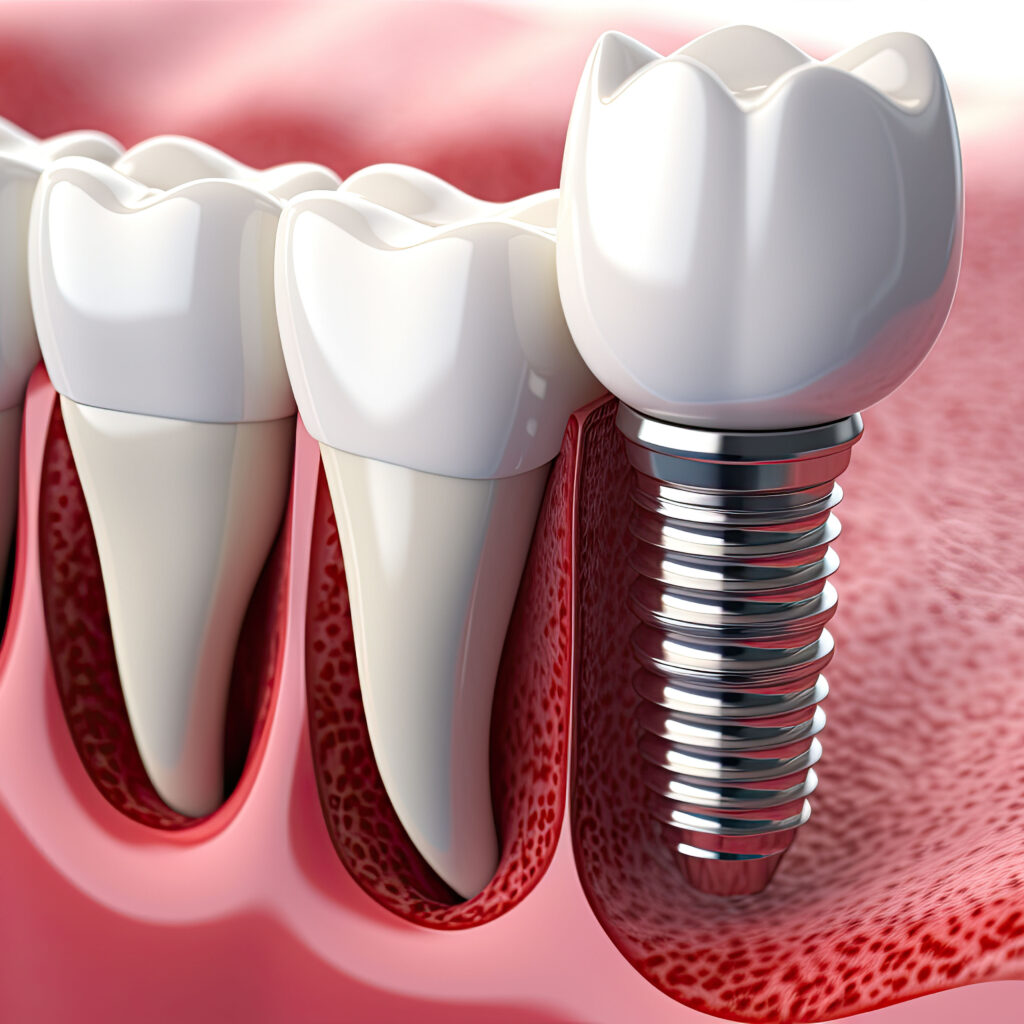Implant-Supported Bridges
When you find yourself in need of replacements for avulsed teeth, implant-supported bridges may make their way into the conversation. Dental implants are a great way to not only fill in any aesthetic gaps, but also can substantially improve the overall functionality of your mouth. When teeth are lost, whether due to disease or facial trauma, the gap can cause your mouth to start to shift around and lose its natural function and look.
Implant-supported bridges are just one of many options your doctor may utilize when it comes to repairing the damage your missing teeth have caused. When you are considering dental implants, you need a dedicated Union City oral surgeon and team of dental professionals on your side. Union City Oral Surgery Group is here to offer exactly that kind of professional support, expertly navigating you through the procedure and assisting with any other concurrent treatments.
HOW MANY IMPLANTS ARE USED?
A dental implant is a great way to replace the function, appearance, and feel of a missing tooth. When you are missing more than one tooth, your oral surgeon may recommend a bridge. Dental bridges traditionally use your adjacent teeth to support a bridge of artificial teeth. Your natural teeth will then anchor down the artificial bridge to allow regular chewing and biting to occur.
Implant-supported bridges combine dental implants with the traditional methods of a dental bridge. You do not need to have healthy or natural teeth on the sides of your bridge. Your natural teeth also will not have to be shaved down and fixed with a cap in order to place the bridge. The amount of implants to secure the bridge will depend on the specific individual, but typically two implants can support three teeth: two crowns and one artificial tooth in the middle.
UNDERSTANDING THE PROCEDURE
For a better understanding of the procedure and how it benefits you in comparison to other popular methods of dental implant procedures, Union City Oral Surgery Group has broken the procedure into two main components:
How It Works
Your implant-supported bridge must first be met with a healthy mouth. For example, if you are currently battling gum disease like periodontitis, your oral surgeon will first want to address these symptoms to ensure that your implants have a sturdy foundation to settle into. Common examples of pre-implant surgical procedures include professional cleanings, gum grafts, bone grafts, scaling and linings, and sinus augmentation.
Once your jawbone and gums have healed, your surgeon will begin the implant process by placing the spoke directly into your jawbone. This will anchor your crown down and, if taken care of properly, can be a permanent addition to your mouth. Once this area has healed, impressions of your mouth will be taken to construct crowns that match the size and shape of your natural teeth. This allows for you to continue speaking and eating as normal. In the meantime, your oral surgeon may opt to fit you with a temporary bridge.
When the crowns are ready, they will be cemented or screwed into place. After this area has fully healed, you may treat your implant-supported bridge as you would your regular teeth. Daily maintenance will be required, including brushing and flossing. Your surgeon may also want to schedule a checkup a few months after the procedure to ensure everything is healing correctly.
The Benefits
As with any other form of dental implant, your mouth will benefit greatly from the inclusion of artificial teeth. Not only will the bridge fully replicate the appearance of your former teeth, but it will also help stimulate regrowth in your jawbone and help strengthen your gums. This helps prevent the weakening and absorption of your bone, which can cause your teeth to shift and your sinuses to begin to sag.
For implant-supported bridges in particular, the surgical procedure is far less complicated and expensive than receiving dental implants for each avulsed tooth. Compared to traditional bridges, it can also save you time and help retain the appearance of any remaining natural teeth. Bridges are also far more supportive than dentures, which rely primarily on suction. Dentures can cause problems when it comes to functionality, including a weak bite, problems chewing, and even hindered speaking.
INTERESTED IN IMPLANT-SUPPORTED BRIDGES? SPEAK TO AN ORAL SURGEON TODAY
If you foresee dental implants in your future, it’s best to consult with a professional dental expert to understand which options would work best for your specific needs. This can include the state of your oral health, your budget, or more. When you partner with an oral surgeon from Union City Oral Surgery Group, you are giving yourself access to a highly qualified, knowledgeable, and compassionate dental professional who specializes in the world of dental implants. The team at Union City is here and ready to help, beginning with an initial consultation and examination in our state-of-the-art facility.
For more information and a better understanding of how we can best help you today, please call our office at (201) 601-9262 or fill out our contact form.


